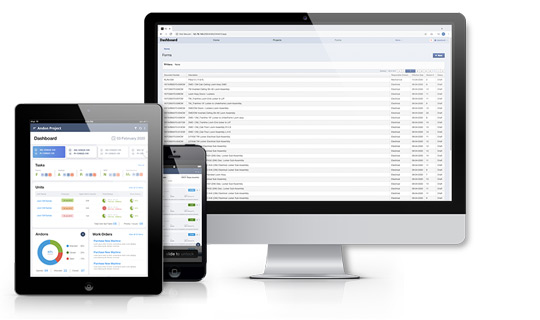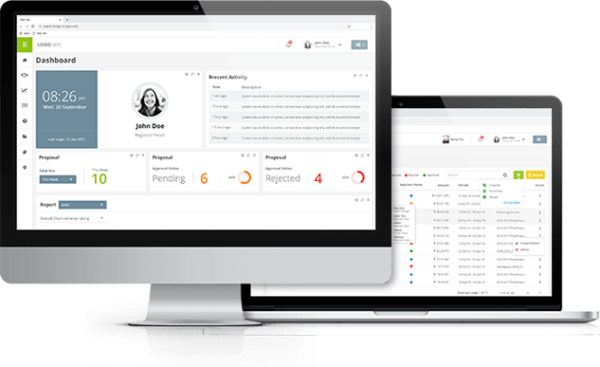In the landscape of enterprise application development, staying ahead of the curve is crucial. One technology that has emerged as a game-changer in recent years is containerization, and at the heart of effective container management lies container orchestration tools. In this blog, we’ll delve into why container orchestration tools are of paramount importance in modern enterprise application development.
The Rise of Containerization
Before we dive into the significance of container orchestration, let’s briefly understand the rise of containerization itself. Containers, in this context, are lightweight, standalone executable packages that contain everything needed to run an application, including code, runtime, libraries, and dependencies. This concept has gained immense popularity due to its portability, scalability, and consistency across different environments.
Challenges Without Orchestration
While containerization brings numerous advantages, managing containers at scale can quickly become a daunting task. This is where container orchestration tools come into play. Without orchestration, enterprises face several challenges:
Scaling Complexity: Manually scaling containers across a large cluster of servers is error-prone and time-consuming. Orchestration automates this process, ensuring efficient scaling based on demand.
Load Balancing: Ensuring that incoming traffic is distributed evenly among containers can be challenging without orchestration. Orchestration tools provide built-in load balancing capabilities.
Resource Allocation: Optimally allocating resources to containers is essential for efficient resource utilization. Orchestration tools monitor resource usage and automatically adjust container placements.
High Availability: Guaranteeing high availability of applications across multiple nodes requires orchestration for tasks like failover and replication.
Rolling Updates: Updating applications without causing downtime is complex without orchestration. Orchestration allows for seamless rolling updates and rollbacks.
The Importance of Container Orchestration
Now, let’s explore the critical reasons why container orchestration tools are indispensable in enterprise application development:
1. Scalability
Containers enable applications to scale horizontally, adding or removing instances as needed. Container orchestration tools like Kubernetes, Docker Swarm, and Amazon ECS simplify the process of scaling, making it automatic and responsive to changes in traffic. This elasticity is crucial in handling spikes in user demand without manual intervention.
2. High Availability
Enterprise applications must be highly available to meet user expectations. Orchestration tools ensure that applications are distributed across multiple nodes, and they can automatically reschedule containers in the event of a node failure, ensuring uninterrupted service.
3. Load Balancing
Evenly distributing incoming traffic is essential for maintaining application performance. Container orchestration tools include load balancers that distribute traffic among healthy containers, reducing the risk of overloading a single instance.
4. Resource Management
Efficient resource utilization is vital for cost-effectiveness. Orchestration tools continuously monitor resource consumption and allocate resources based on defined policies, optimizing performance while minimizing waste.
5. Rolling Updates
Application updates and patches are inevitable. Orchestration tools enable seamless rolling updates, allowing new versions of containers to be deployed gradually while maintaining uninterrupted service. If issues arise, rollbacks can be executed just as smoothly.
6. Multi-Cloud and Hybrid Deployments
As enterprises adopt multi-cloud and hybrid cloud strategies, container orchestration tools provide portability, allowing applications to run consistently across various cloud providers and on-premises environments.
7. Infrastructure Abstraction
Orchestration tools abstract the underlying infrastructure, allowing developers to focus on building and deploying applications without needing in-depth knowledge of the underlying infrastructure.
8. DevOps and Automation
Container orchestration aligns well with DevOps practices and automation. It enables Continuous Integration/Continuous Deployment (CI/CD) pipelines and automated workflows, speeding up development cycles.
Container orchestration tools have become the backbone of modern enterprise application development. They offer the agility, scalability, and reliability required to meet the demands of today’s digital business landscape. Embracing these tools is not just an option; it’s a necessity for organizations aiming to deliver high-performing, resilient, and cost-effective applications in a containerized world. Whether you choose Kubernetes, Docker Swarm, or another solution, the importance of container orchestration in enterprise application development cannot be overstated. Connect with Zinemind.com today to learn more and discuss how we can help you in your enterprise application development requirements.













